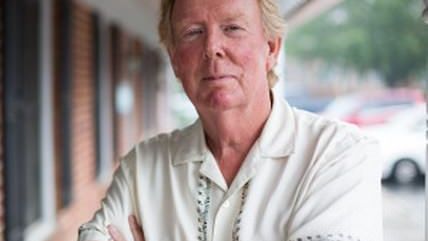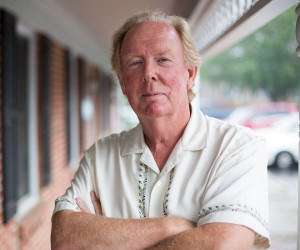Judge Blocks Kentucky's Absurd Attempt to Censor 'Unlicensed' Advice Columnist
No, you don't have to have the state's approval to tell families how to solve problems.


Hey, look, it's yet another victory for the Institute for Justice. They stepped in when the Kentucky Board of Examiners of Psychology said nationally syndicated advice columnist John Rosemond's writings constituted the unlicensed practice of psychology in their state. They also said he could not identify himself as a "family psychologist," even though he is, because he's not licensed in Kentucky.
This is all utterly absurd violation of Rosemond's First Amendment rights, and we took note of it back in 2013 when the cease-and-desist order first reared its misbegotten head. A federal judge this week found it equally absurd, stating in the simplest, clearest of terms that Rosemond's advice column is protected speech and Kentucky cannot force him to stop:
Now, in an exercise of regulatory zeal, the Kentucky Board of Examiners of Psychology seeks to prohibit Rosemond from publishing his column in Kentucky while referring to himself as a "family psychologist." In an effort to avoid the State's enforcement of K.R.S. § 319.005, the State's statute regulating the practice of psychology, Rosemond protectively filed this action in which he asks that the Board be permanently enjoined from interfering with the publication of his column. Resolution of the case requires balancing the State's interest in regulating the practice of psychology with constitutional protections of speech. As Rosemond's speech deserves the highest level of constitutional protection, and because the State has failed to articulate compelling reasons for regulating that speech, the Board will be enjoined from further interfering with the publication of Rosemond's column.
Through the Institute of Justice, Rosemond responded:
Rosemond said, "If the government could censor a nationally syndicated columnist like me, there would be no limit on the sources of parenting advice it could outlaw. Thankfully, this ruling ensures that parents have the right to decide for themselves where they want to get parenting advice."
The Institute for Justice further noted that another case where the government uses occupational licensing to attempt to control speech may be heading to the Supreme Court. The State of Texas prohibits veterinarians from giving medical advice over the Internet about specific animals unless the veterinarian has first physically examined the animal. The 5th Circuit upheld the law (determining it regulates conduct, not speech), and the Institute for Justice is hoping the Supreme Court will take the case.
Editor's Note: As of February 29, 2024, commenting privileges on reason.com posts are limited to Reason Plus subscribers. Past commenters are grandfathered in for a temporary period. Subscribe here to preserve your ability to comment. Your Reason Plus subscription also gives you an ad-free version of reason.com, along with full access to the digital edition and archives of Reason magazine. We request that comments be civil and on-topic. We do not moderate or assume any responsibility for comments, which are owned by the readers who post them. Comments do not represent the views of reason.com or Reason Foundation. We reserve the right to delete any comment and ban commenters for any reason at any time. Comments may only be edited within 5 minutes of posting. Report abuses.
Please to post comments


What about the case of the dude (or chick?) in NC who had a paleo nutrition blog? What ever came of that?
Another vistory for the good guys.
"vistory" = victory story?
Viscount story. History is written by the viscounts.
I want to have IJ's babies.
Little suit-wearing infants practicing baby law.
D'awwww. [chucks baby lawyer under chin, rushes to ED to have finger re-attached]
What justification is there for state licenses not crossing borders? Marriage licenses are required to be acknowledged so why not others?
Same as a concealed carry permit - FYTW.
FYI, FWIW, FYTW.
Is that Welsh for veni, vidi, vici?
The justification? You didn't pay tribute to that state, so you don't have the right to work there.
The bottom line is that they get away with it because licensed florists are few in number and aren't likely to spark a rebellion.
That is a very interesting question, illocust. I don't know enough about Full Faith and Credit jurisprudence to say, really, but I am baffled by why driver's licenses are universally recognized, when CCW licenses are not.
For one thing, driver's licenses are much older. They didn't used to be recognized nationwide, back when people didn't usually drive that far. I remember (c1960) when I got my first DL the driving rules varied widely by state, as carry laws do now.
Back then Congress was competent enough to fix it.
I wonder if this attempt at censorship has anything to do with Rosemond's stern anti-coddling philosophy of childrearing?
I mean, treating children as vulnerable precious snowflakes has worked out so well, how dare Rosemond challenge this record of success by urging strict discipline?
I know the IJ works pro bono, but I wish they could recoup legal fees from censorious assholes (thank you, popehat) to dissuade exactly this sort of thing.
They must get awarded court costs/legal fees in some of their cases, non?
"The State of Texas prohibits veterinarians from giving medical advice over the Internet..."
"The 5th Circuit upheld the law (determining it regulates conduct, not speech)"
No offense to the many counselors here, but what the hell do they do to your brain in law school?
Huh?
That surprises me, actually, The 5th tends to be one of the better Circuits.
Of course, veterinarians aren't supposed to give medical advice to anyone, ever, in a professional capacity. You need a medical license, not a vet license, to do that.
Read the whole sentence in the article. "How to worm your dog" is medical advice even though it's about a critter.
So the vet can do an internet post on "How to worm a dog" but not about "How to worm your dog," unless she's examined your dog.
And since the vet isn't doing the deworming themselves how is that activity rather than speach ? All they are doing is typing their words out.
I think we all here know that that is the vet lobby trying to prop up their practices against the development of online cheaper vets.
" purdy soon them Injuns from over there will be a vetting over the interwebs
I make up to $90 an hour working from my home. My story is that I quit working at Walmart to work online and with a little effort I easily bring in around $40h to $86h? Someone was good to me by sharing this link with me, so now i am hoping i could help someone else out there by sharing this link... Try it, you won't regret it!......
http://www.HomeJobs90.Com